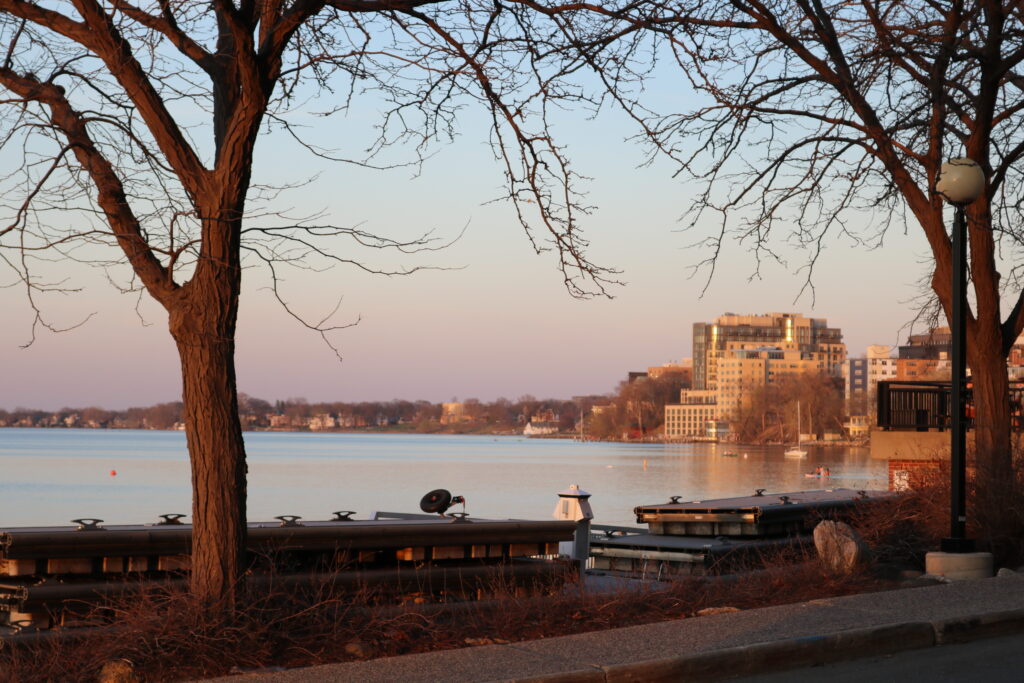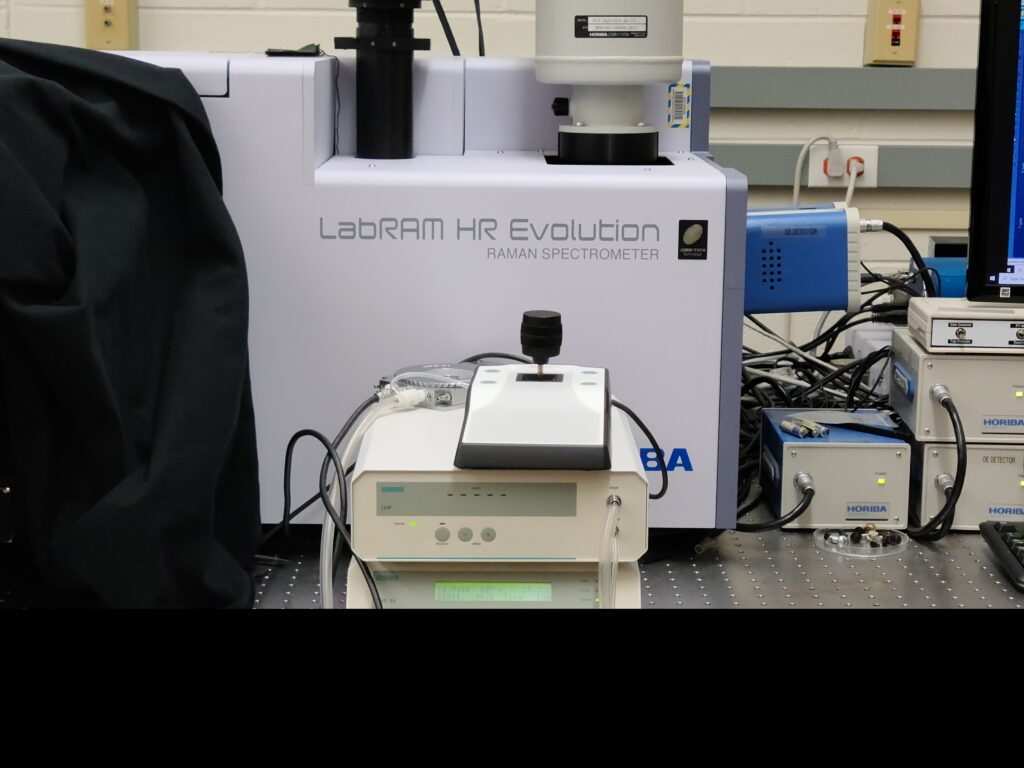A PFAS conundrum

An evening view of Lake Mendota from outside UW-Madison’s Water Science and Engineering Laboratory. Image credit: Andrew Glasgow
This summer, 31 students from across the country were chosen for the University of Wisconsin-Madison’s Freshwater@UW Summer Research Opportunities Program, which is affiliated with Wisconsin Sea Grant, the University of Wisconsin Water Resources Institute and the University of Wisconsin-Madison Graduate School. Many of the students provided reflections on what they learned. We’ll share several over the coming months. Here’s Andrew Glasgow, an undergraduate in civil and environmental engineering from the University of Wisconsin-Madison.
When people hear that I spent my summer on the shore of Madison’s Lake Mendota, many imagine leisurely days basking in the sunshine. While many of my evenings were spent outdoors with colleagues and new friends, the bulk of my daylight hours were instead spent indoors at UW-Madison’s lakeside Water Science and Engineering Laboratory—where matters far removed from summer fun weighed upon my mind.
As part of the Freshwater@UW research program this summer, I worked to develop an inexpensive, accessible method for detection of PFAS in drinking water. PFAS, also known as “forever chemicals,” are a group of over 4,000 toxic, synthetic substances with high persistence and ubiquity in the environment and drinking water. However, due to the cost and time constraints of current detection methods, many communities—especially those without access to financial resources—cannot monitor their water supply for PFAS contamination. As such, these communities may unknowingly continue to ingest high levels of PFAS, potentially leading to cancer and other health issues. Through my involvement in this project, I sought to help protect human health by combating this state of affairs.

The Ramen Spectrometer used by Glasgow in Wei’s lab. Image credit: Marie Zhuikov, Wisconsin Sea Grant
My mentor, Haoran Wei, and I hoped to detect PFAS using surface-enhanced Raman spectroscopy (SERS): a rapid, inexpensive technique that uses a laser to detect different molecules. While prepared for failure, we had high hopes for success; SERS’ usage had facilitated the detection of other micropollutants in the past. And to our great encouragement, our hopes seemed to be affirmed by the initial results. With further research, we discovered that these groundbreaking results were not as they seemed; our method had been detecting another substance instead and was thus unsuccessful.
One half of the program had passed when we made this discovery—one month spent performing dangerous and tedious work, in service of an illusion waiting to be shattered. Considering the mental tolls of PFAS work, learning the truth of our results was a disorienting blow, as our confidence and endurance of those struggles now felt purposeless. Not only would our work not improve the current detection methods for PFAS in drinking water, but it could likely not be published for other researchers (despite its value), due to publication bias and the optics of “failed” results.
While my mentor and I still attempted to analyze why PFAS could not be detected, technological limitations unfortunately prevented final confirmation after weeks of analysis. Our project ended on this anticlimactic note.
Despite this conclusion, however, if given the opportunity to live the entire experience over, I would do so in a heartbeat. Although the final research outcome was disappointing, I developed essential skills and learned powerful lessons that I will carry throughout my career. Even more valuable was the opportunity to become integrated into a research community—which, as I discovered, is an opportunity to cherish. When there are new undergraduate and graduate friends to connect with, to mutually share excitements and failures, the weight of any personal defeat pales in comparison. I am very grateful for both the research and the friendships that the Freshwater@UW program provided me.
The post A PFAS conundrum first appeared on Wisconsin Sea Grant.
Blog | Wisconsin Sea Grant
https://www.seagrant.wisc.edu/blog/a-pfas-conundrum/
